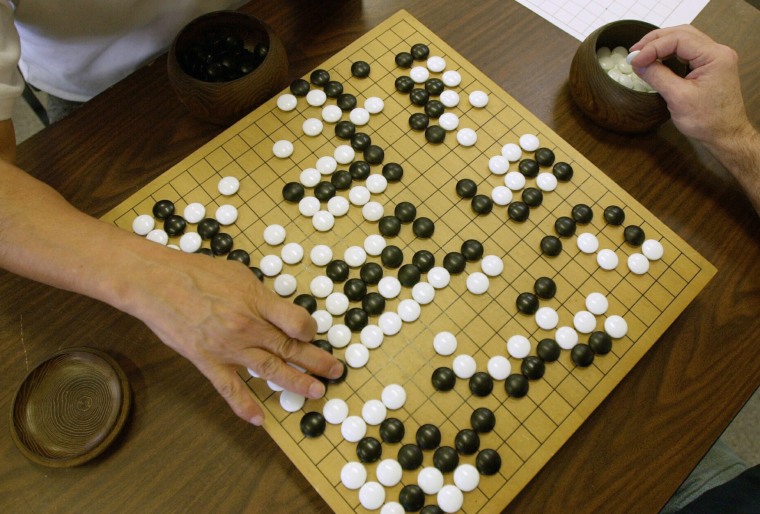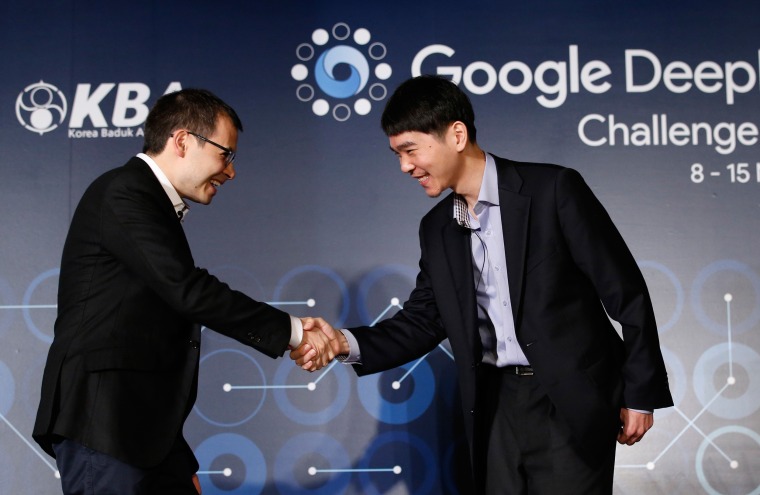SEOUL, South Korea — The world champion of an ancient but fiendishly complicated board game was defeated by the latest in computer technology in the first match of a series aiming to help determine whether a machine can imitate human intuition.
South Korea’s Lee Sedol, who surrendered in the first of five "Go" matches against Google-owned computer program AlphaGo in Seoul on Wednesday, said he was "in shock" after the loss.
"I never thought that AlphaGo could play so perfectly," said the champion in Chinese Go, which is known as Baduk in Korea and played with circular black and white stones on a 19-by-19 grid. "I think my initial mistake lasted to the end and that led to the loss."

The 33-year-old added he was very surprised that AlphaGo made moves "that could not have been possible for human being to choose."
Related: Why is Facebook Researching Artificial Intelligence?
The big challenge for AlphaGo’s creators has been to establish a series of rules that tell the computer who is winning in any particular position, according to Demis Hassabis, CEO of Google-owned artificial intelligence firm DeepMind.
"Go is primarily a game about intuition rather than brute-force calculation used in chess," Hassabis said at a press conference on Tuesday. While Go is “the most elegant game humans ever invented," it leads to “profound complexities," he added.
"There are more possible Go positions than there are atoms in the universe,” Hassabis said.
It is not the first time that computers have challenged human minds.
The victory in 1997 of the chess-playing computer Deep Blue in a six-game series against the then-world champion Gary Kasparov was seen as a significant milestone in the development in the field of AI.
AlphaGo defeated reigning European champion Fan Hui 5-0 in a tournament in October. This was the first time a computer program beat a professional human Go player in even games on a full board without handicap.
Speaking before the first match, Lee said it felt “strange” to think about playing a computer, but he looked forward to the challenge.
“It is different preparing for a game against a non-person,” he said. “When I prepare for a match against a person, it is important to read that person's energy. But I can't do that in this match and so it may feel like playing the game all by myself.”

The eventual endgame for AlphaGo is to build artificial general intelligence, or AGI, to be applied in areas like healthcare and elderly care robotics.